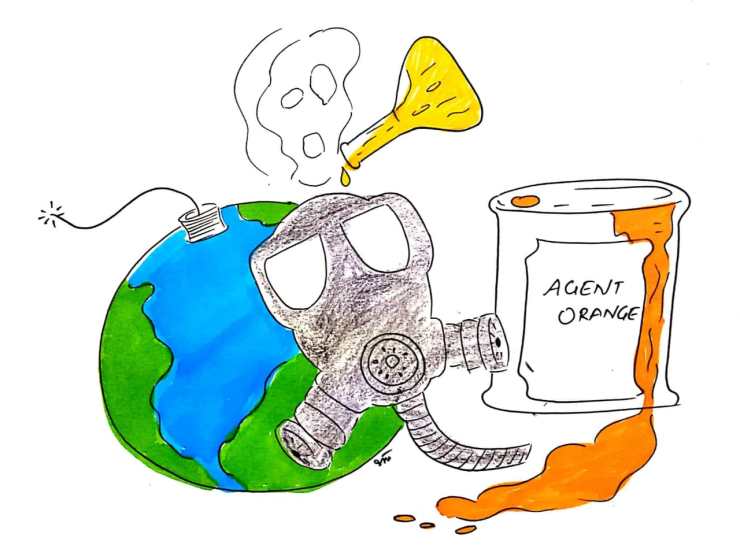
Consign Chemical Weapons to ‘Pages of History’ and Remain Vigilant Against Their Use
António Guterres, UN Secretary-General
Chemical warfare uses the toxic properties of chemical substances to kill, injure or incapacitate the enemy. The fact that chemical weapons were used extensively is a case where the advancements of science and technology are used for causing suffering to people. The “Day of Remembrance for all Victims of Chemical Warfare” is an annual event held on November 30 as a tribute to the victims of chemical warfare. It is also to reaffirm the commitment of the “Organisation for the Prohibition of Chemical Weapons (OPCW)” to the elimination of the threat of chemical weapons, and promoting the goals of peace, security, and multilateralism. OPCW has received the 2013 Nobel prize for its extensive efforts for elimination of chemical weapons. Before 2015, Observance of “Day of Remembrance for all Victims of Chemical Warfare”, used to be held on April 29. Now ‘International Day for the Foundation of the Organisation for the Prohibition of Chemical Weapons (OPCW Day)’, is being observed on April 29.
More than 100 years after the first large‑scale use of chemical weapons in battle, they continue to inflict terror, suffering and death. A chemical weapon utilises a manufactured chemical to incapacitate, harm, or kill people. Chemical weapons rely on the physiological effects of a chemical and can kill large numbers of people. Chemical weapons are of great concern because they are cheaper and easier to manufacture and deliver than nuclear or biological weapons.
Chemical weapons meant for mass destruction were used during World War I. Poisonous gases in various forms were used to kill, weaken, and incapacitate the enemy on the battlefield. The result was devastating, and nearly 100,000 lives and there was public outrage to abolish chemical weapons. Geneva Protocol, adopted in 1925, calls for the abolishment of chemical weapons in warfare. However, the protocol did not have restrictions on development or stockpiling of chemical weapons due to which non-government and extremist organisations continued to develop chemical weapons. Chemical weapons were again used during World War II, the Vietnam War in the 1960s and the Iran-Iraq war in the 1980s taking lives of innocent civilians. Dioxin a by-product of Agent Orange, used in the Vietnam war, lingers up to 100 years, causing deaths and birth defects. Some of the modern chemical weapons that are the types of agents: Choking agents (phosgene, chlorine), Blister agents (nitrogen mustard, lewisite), Nerve agents (tabun, sarin, VX). Despite the worldwide efforts to eliminate chemical warfare, the use of chemical weapons was noticed in Syria between 2013-2019. In 1995, a non-governmental actor, Aum Shinrikyo, killed 13 and injured 5,800 Japanese commuters in Japan’s largest chemical weapons attack.
The world has travelled a long way in eliminating chemical warfare, but it is still work in progress and a long way ahead. The world leaders and organizations must be united and work in harmony against the usage of chemical weapons.

The use of chemical weapons anywhere, by anyone, under any circumstances, is intolerable. Those responsible must be brought to justice, and this independent of who is using such weapons.

Toons: Anusha and Reema Jaiswal
Logs: Sneha Yadla and Sai Baba
